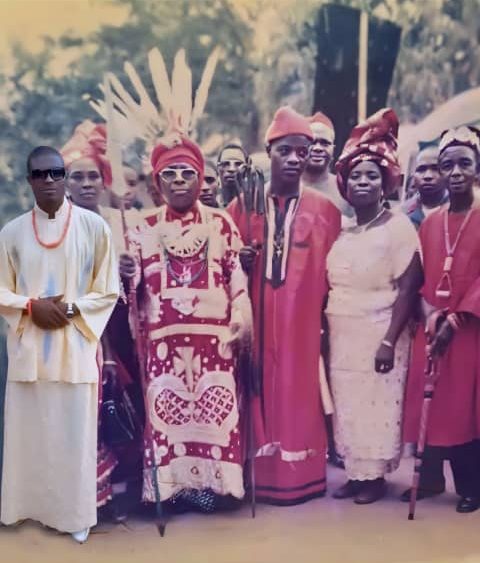BY KWUBOSU ROSEMARY
IN Nigeria, the extended family system has been a cornerstone of our cultural heritage for centuries. This system, where multiple generations of relatives live together or in close proximity, has been a vital part of our social fabric. Despite the increasing influence of Western culture and the rise of nuclear families, the extended family system remains a valuable institution in Nigeria.
One of the most significant benefits of the extended family system is the sense of community and belonging it provides. In an extended family setting, individuals are surrounded by relatives who provide emotional support, guidance, and a sense of identity. This sense of community is essential in Nigerian culture, where the concept of communal living is deeply ingrained.
Growing up in Agbor, Delta State, I have fond memories of the extended family system that played a significant role in shaping my childhood and adolescence. Our extended family was a vibrant and lively community, where multiple generations of relatives lived together or in close proximity. One of my earliest memories is of our family compound, where my grandparents, parents, aunts, uncles, cousins, and siblings all lived together. The compound was always bustling with activities, with children playing, women cooking, and men working on various projects. Our extended family was a support system that provided love, care, and guidance to all its members.
One of the ways our extended family helped me and my siblings was by providing a shared childcare system. Our grandparents, aunts, and uncles would often take turns caring for us, feeding us, and putting us to bed. This shared responsibility allowed our parents to focus on their work and provide for the family, while also ensuring that we received the care and attention we needed.
Another way our extended family helped us was by providing financial support. During times of economic hardship, our relatives would often come together to provide financial assistance, whether it was to pay for school fees, medical bills, or other essential expenses. This financial support was invaluable as it helped us to stay afloat during difficult times.
Our extended family also played a significant role in our education and personal development. Our relatives would often provide guidance and mentorship, helping us to make informed decisions about our education and career paths. They also encouraged us to pursue our passions and interests, whether it was music, sports or art.
In addition, our extended family helped us to develop important life skills such as cooking, cleaning and time management. Our relatives would often teach us how to prepare traditional meals, clean the house, and manage our time effectively. These skills have been invaluable in my adult life as they have helped me to become more independent and self-sufficient. Our extended family provided us with a sense of belonging and identity. Growing up in a close-knit community, we felt a strong sense of connection to our relatives and our cultural heritage. This sense of belonging has been essential in shaping my sense of identity and self-worth.
On a personal level, the extended family system played a vital role in my upbringing and personal development. It provided me with a support system, financial assistance, guidance and a sense of belonging. As I look back on my childhood and adolescence, I am grateful for the love, care and support that my extended family provided.
At a general level, the extended family system is the sharing of responsibilities and resources. In an extended family setting, relatives can share childcare responsibilities, household chores and financial burdens. This sharing of responsibilities not only reduces the workload on individual family members but also fosters a sense of cooperation and mutual support. The extended family system also plays a crucial role in preserving cultural heritage and traditional values. In an extended family setting, older relatives can pass down cultural traditions, customs and values to younger generations. This helps to ensure the continuation of Nigerian cultural heritage and the preservation of our traditional way of life.
Furthermore, the extended family system provides a vital safety net for individuals in times of need. In an extended family setting, relatives can provide financial support, emotional comfort and practical assistance during times of crisis such as illness, unemployment or bereavement.
Finally, the extended family system promotes social cohesion and reduces the risk of social isolation. In an extended family setting, individuals are less likely to feel lonely or disconnected from society. This is particularly important in Nigeria, where social cohesion is essential for building strong and resilient communities.
In conclusion, the extended family system is a valuable institution in Nigeria’s cultural setup. It provides a sense of community and belonging, shares responsibilities and resources, preserves cultural heritage and traditional values, provides a safety net in times of need and promotes social cohesion.
As we navigate the challenges of modernization and urbanization, it is essential that we cherish and preserve this vital aspect of our cultural heritage. The extended family system is a valuable institution in Nigeria and it continues to play an essential role in shaping the lives of many Nigerians.


